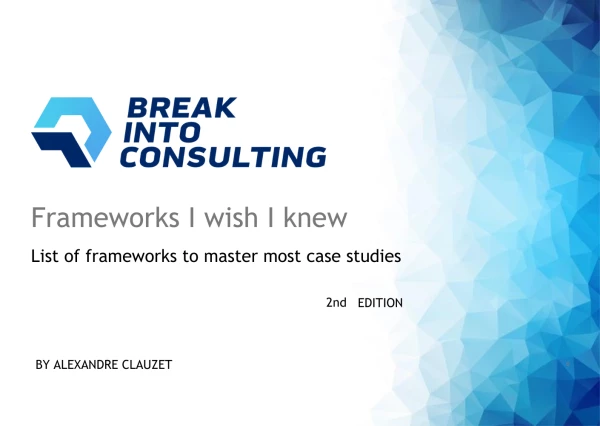Hi Everyone,
First post here and am wondering if someone can provide me some insight on how to structure a problem/case.
Whenever I approach a case (or any business problem), I find myself having difficulty in structuring the information provided. I find it difficult to identify the critical levers of the problem and do not know how to divide the problem into relevant buckets. This seems to me like a clear issue of me not knowing how to structure or create a relevant framework around the problem.
I am not sure how to specifically get better at this. Is it simply input = output where I just need to get more practice in the cases themselves? It could potentially also be my lack of business knowledge around the cases themselves (the more information you have relevant to the context, the better the probability of a non-generic solution).
Any insight on this would be greatly appreciated. Thank you so much!

















